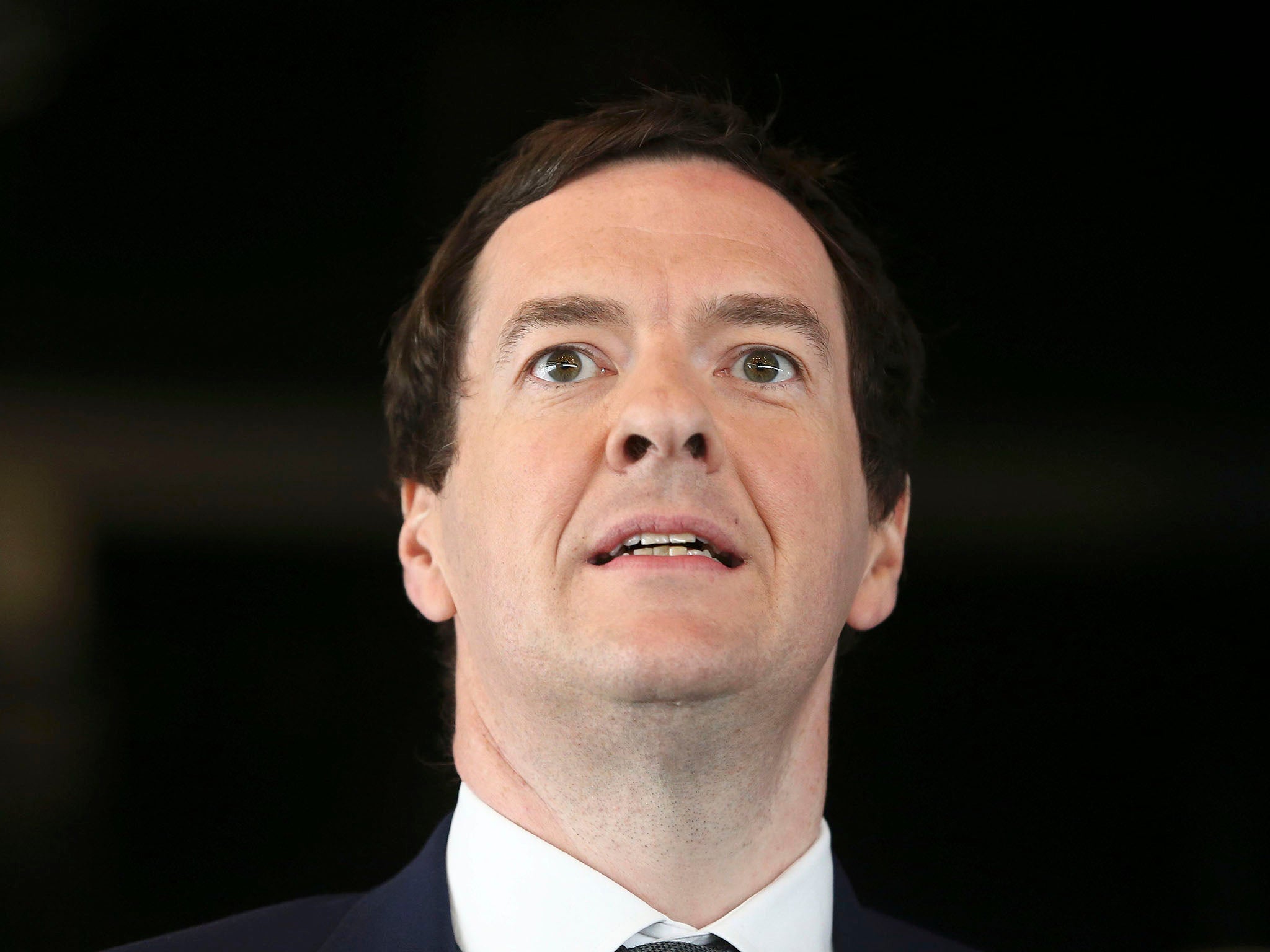George Osborne ‘was sacked by Theresa May' as Chancellor
Cabinet overhaul signals end for George Osborne as Prime Minister distances herself from David Cameron’s administration

Your support helps us to tell the story
From reproductive rights to climate change to Big Tech, The Independent is on the ground when the story is developing. Whether it's investigating the financials of Elon Musk's pro-Trump PAC or producing our latest documentary, 'The A Word', which shines a light on the American women fighting for reproductive rights, we know how important it is to parse out the facts from the messaging.
At such a critical moment in US history, we need reporters on the ground. Your donation allows us to keep sending journalists to speak to both sides of the story.
The Independent is trusted by Americans across the entire political spectrum. And unlike many other quality news outlets, we choose not to lock Americans out of our reporting and analysis with paywalls. We believe quality journalism should be available to everyone, paid for by those who can afford it.
Your support makes all the difference.George Osborne did not resign his post as Chancellor of the Exchequer but was fired by Theresa May to make way for former foreign secretary Philip Hammond, according to reports.
News of Mr Osborne’s departure came after Ms May moved to distance herself from David Cameron’s government during her first address as Prime Minister.
Speaking at Downing Street, she said she would “fight against burning injustice” to create “a country that works for everyone”, not “entrench the advantages of the fortunate few”.
According to ITV, a “No 10 source” said it was Ms May who sacked Mr Osborne, and that the Chancellor had not offered his resignation.
Meanwhile, a “senior source close to Mrs May” told The Sun: “She told him she did not want him to be part of the Cabinet”.
Mr Osborne was seen leaving No 11 Downing St by a back door.
Following his departure from the front bench, Mr Osborne tweeted: “It’s been a privilege to be Chancellor these last 6 yrs. Others will judge – I hope I’ve left the economy in a better state than I found it.”
Mr Hammond, who became the new Chancellor on Wednesday, said though the Brexit vote had had a chilling effect on the economy, he would not implement an emergency budget, as Mr Osborne had promised.
He also said that Britain needs “to ensure access to the single market for our financial services industry”, signalling the government’s likelihood of doing a deal to shore up the UK’s European business interests.
Speaking to the BBC, Mr Hammond said: “We will face some challenges in the short term in managing the economy. It has had a shock as a result of the decision on June 23 to leave the European Union.
“That has shaken confidence, it has caused many businesses to pause investment decisions that they were making."
He added: “The challenge for us now is to send signals of reassurance about the future as quickly and as powerfully as we can to the international investment community, to British business and to British consumers so we can get those decisions starting to be made and investments starting to flow into the UK.”
Join our commenting forum
Join thought-provoking conversations, follow other Independent readers and see their replies
Comments